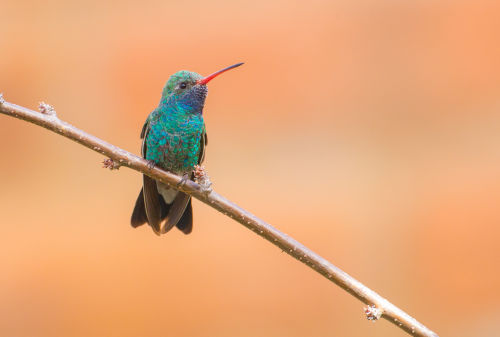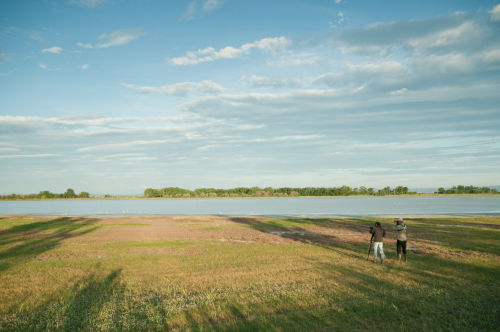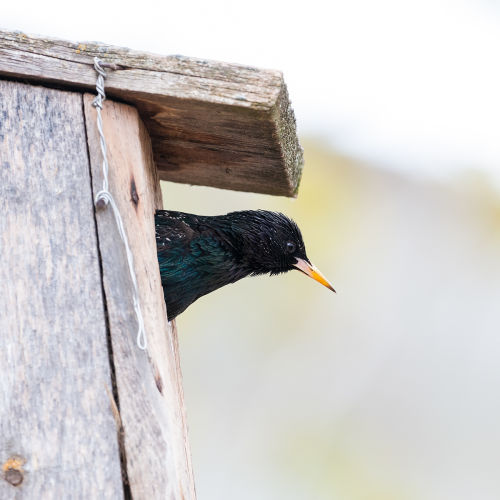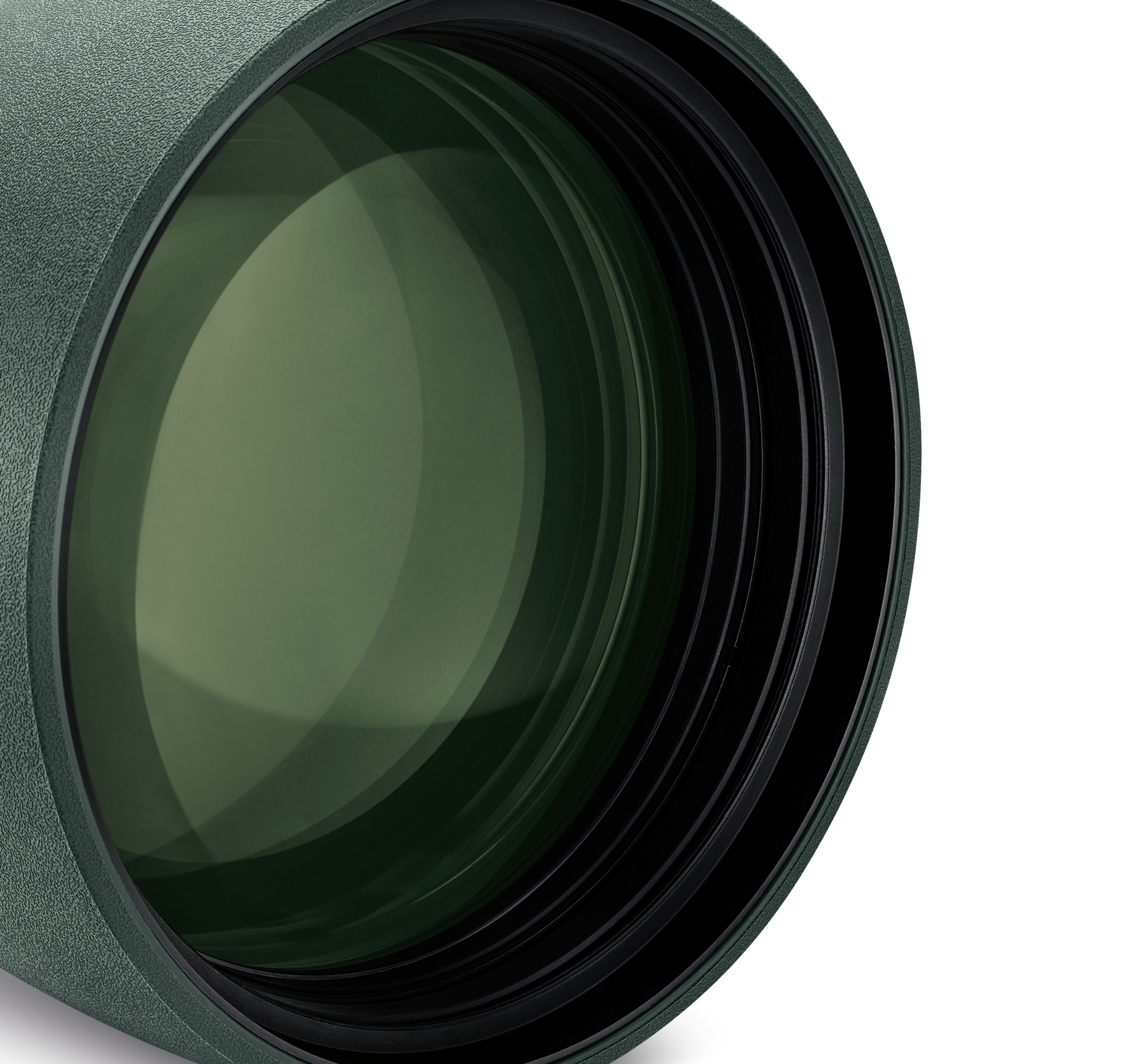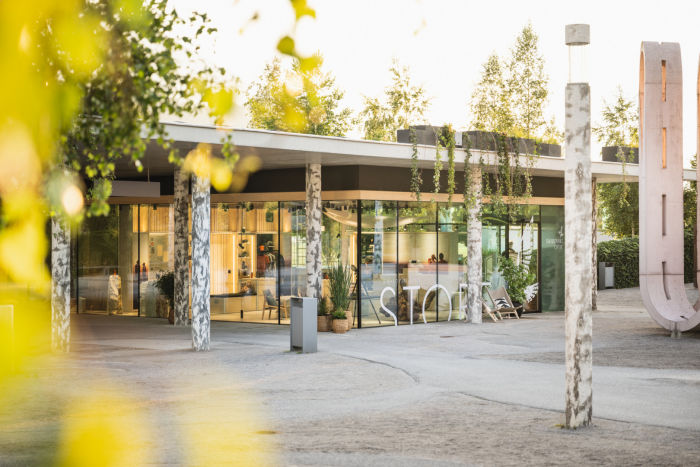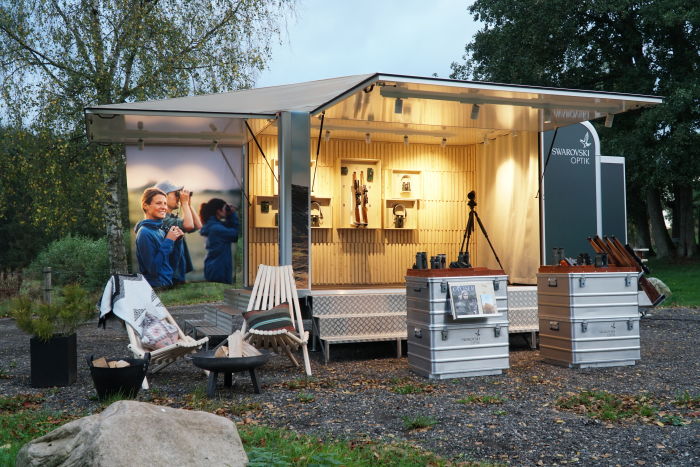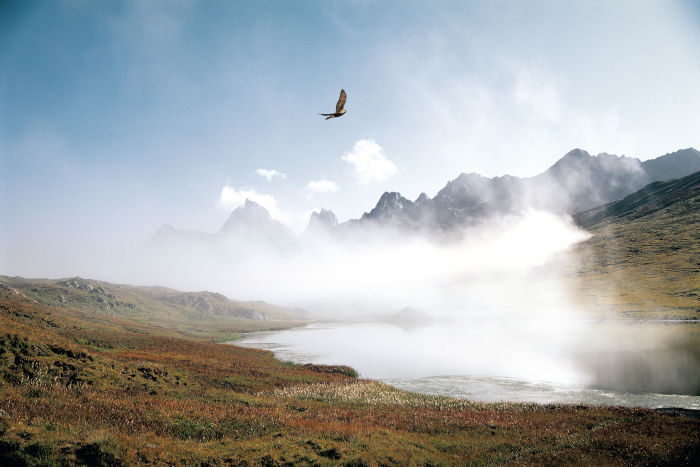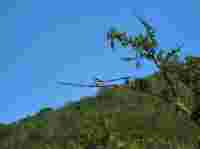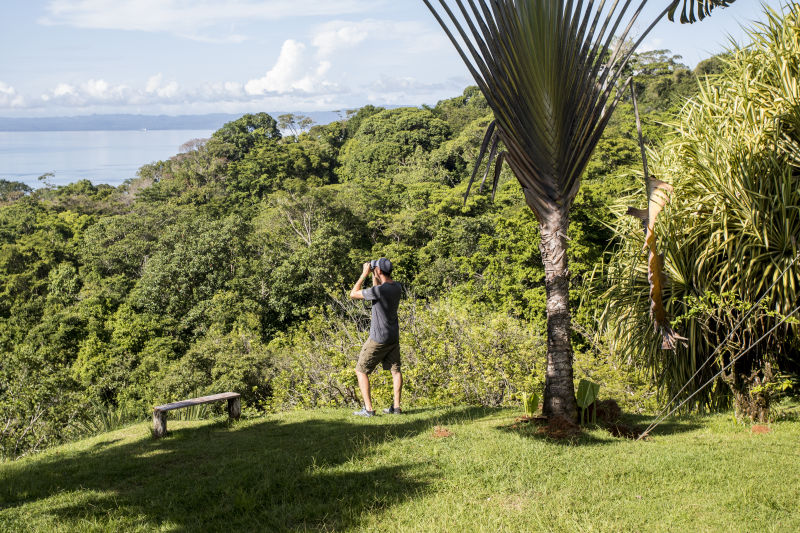Birding is more than just a hobby; it's a gateway to understanding the intricate beauty of nature. For SWAROVSKI OPTIK staff member Danielle McKenney, a Canadian data scientist with a passion for birding, the AX Visio has revolutionized her approach to this beloved pastime, transforming it into a powerful tool for scientific research and discovery.

The Beginning of a Birding Journey
Danielle's birding adventure
Danielle's birding adventure began five years ago during a trip to California with a friend who introduced her to the world of birds. Equipped with borrowed binoculars, she explored hiking spots teeming with avian life. This experience ignited a passion that led her to acquire her own binoculars and delve into the birding scene in Austria. Birding became a core part of her personality, influencing her decisions on trips and providing a deep connection to nature.
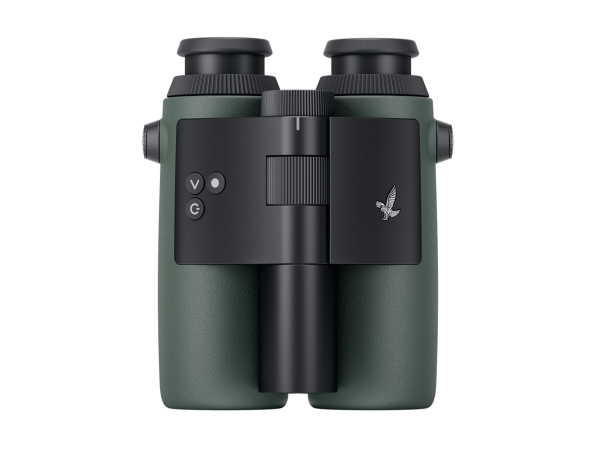
The AX Visio:
A Game-Changer in Birding
The AX Visio binoculars have been a game-changer for Danielle. These smart binoculars, equipped with a camera for photos and videos, have supported her in becoming an ever more knowledgeable birder. In her scientific field work, the AX Visio has become an indispensable tool, as it helps both in bird identification as well as documentation.


In terms of handling, the AX Visio's combination of binoculars and camera has been a significant advantage. Danielle appreciates the ease of use and the ability to identify bird species at the click of a button. However, she also enjoys consulting a bird guide book to cross-reference the AI predictions. This adds an extra layer of accuracy and enjoyment to the birding experience, in her eyes. The AX Visio also helps Danielle learn a lot! Reviewing the photos is a great way for her to study the most important features of a bird without the hectic of real-time observation.
Personal Insights from the Field
As a member of the development team at Swarovski Optik, Danielle's field experiences have provided valuable insights into the practical applications of the AX Visio. Her work involves formalizing field trial processes and creating platforms for uploading and annotating pictures. She is also involved in testing new versions to make sure they’re free of bugs before they get released. Danielle especially enjoys talking with people from the birding community about what new features they would most like to see and discovering where they see value and potential in the AX Visio. These contributions have helped build trust within the birding community and improve the device's functionality based on real-world feedback.
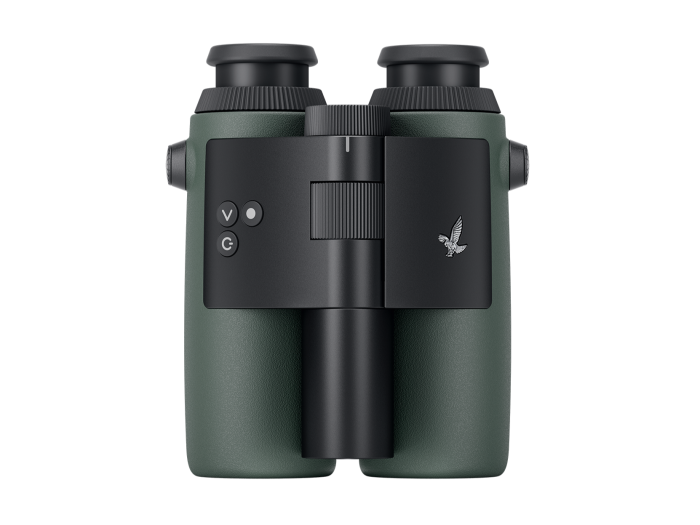
Birding Adventures and Memorable Experiences
Danielle's birding adventures have taken her to various locations, from local parks in Innsbruck to the wild expanses of Lake Superior Provincial Park in Northern Ontario. One of her most memorable experiences was finding a flock of cedar waxwings during a solo hike. The AX Visio played a crucial role in identifying the birds and capturing stunning photos, allowing her to fully immerse herself in the moment.
Video taken with AX Visio by Danielle McKenny
Birding in South Africa: Challenges and Discoveries
Her birding journey also led her to South Africa, where she participated in a research project at Pongola Game Reserve. The project focused on ringing European migrants and studying their paths. Despite the challenges posed by the thorny flora and encounters with wildlife, the AX Visio proved to be an essential tool in documenting and analyzing bird species.
About the research project “White Elephant Bird Banding Project”
To find out more about the path of European migrants in South Africa, an international research group gathered at the Pongola Game Reserve in November and December 2024.
The project could count on the support of Lyndon Roberts and Prof. Anne Goodenough from the University of Gloucestershire for arranging permission and permits for the project. PhD student Aurora Gonzalo-Tarodo organized and supervised the implementation. Professor Juanma from the Department of Zoology at the University of Sevilla participated and analyzed the genetic samples. Volunteers in the field came from ANEA and the Zamalla Ornithological Group from Sevilla, Spain.

Ringing European migrant birds
Volunteer work for bird conservation
Danielle participated as a volunteer and as such, it was her task to ring European migrant birds, such as European bee eaters, barnswallows, willow warblers or Iberian warblers. Many of these have declining populations. She also gathered feather samples for genetic analysis. As a bird’s diet influences its feathers, old feathers let the researchers know where the bird came from and which path it took. New feathers can indicate that the bird stopped to moult before finishing its migration. All this information should help to find out which migration routes are most crucial and thus need to be protected.
Fieldwork with the AX Visio
Danielle's fieldwork routine at the Pongola Game Reserve in South Africa was both rigorous and exhilarating. Each day began at the crack of dawn, around 4 am, to take advantage of the cooler morning temperatures and the heightened activity of birds at sunrise. After a quick coffee and a light breakfast, the team would drive out to their designated bird ringing spot for the day.
Upon arrival, they would set up the nets and eagerly await their avian visitors. The excitement was palpable each time they caught a new species, especially those that had never been ringed at this location before. As a trainee without her own bird ringing license, Danielle took these opportunities to hone her skills, practicing techniques under the guidance of more experienced team members.
By mid-morning, as the temperatures soared, the team would close the nets to protect the birds from the heat and return to camp for a well-deserved rest. The afternoons were often spent in relaxation. However, for Danielle and a few others, the adventure continued as they scouted new bird ringing spots within the reserve. This exploration allowed them to witness the park's diverse wildlife and discover new birding opportunities.
One of Danielle's favorite parts of the day was nature watching from their camp, which featured an incredible watering hole that attracted a variety of animals. As the evening cooled, the team sometimes engaged in setting up owl nets or lamping, a technique for trapping nocturnal species by shining a light on them. Although Danielle didn't always participate in these evening activities, knowing they had another early start the next day, the experiences were always memorable.

Precious Moments with the AX Visio
Danielle's time in the field was filled with unforgettable moments, many of which were enhanced by the AX Visio. One such instance was the first time she spotted a martial eagle soaring above. The AX Visio was instrumental in identifying this majestic bird, marking one of Danielle's first successful identifications with the device.
Another highlight was discovering a picturesque pond teeming with birdlife she had never encountered before. Thanks to the AX Visio, Danielle didn't feel overwhelmed even in new locations with hundreds of species she had never encountered before. She could document each bird and use the device's suggestions to confirm their identities, making the experience both educational and enjoyable.

capture and identify birds quickly
These fieldwork experiences not only deepened Danielle's connection to nature but also underscored the practical benefits of the AX Visio in scientific research. The ability to capture and identify birds quickly and accurately proved invaluable, allowing her to focus on the joy of birding and the thrill of discovery.
The Future of Birding with AX Visio
Looking ahead, Danielle sees immense potential for the AX Visio in various birding scenarios. Its ability to capture high-quality images makes it perfect for travelers who want to avoid carrying bulky cameras. The binoculars offer a seamless blend of observation and documentation, making birding more accessible and enjoyable.

The AX Visio binoculars have not only enhanced Danielle's birding experiences but also contributed to scientific research. At the moment, Danielle is working on adding features and improving machine learning models on the AX Visio. As Danielle continues her work at SWAROVSKI OPTIK, her insights and experiences from the field will undoubtedly inspire further innovations in birding technology.
